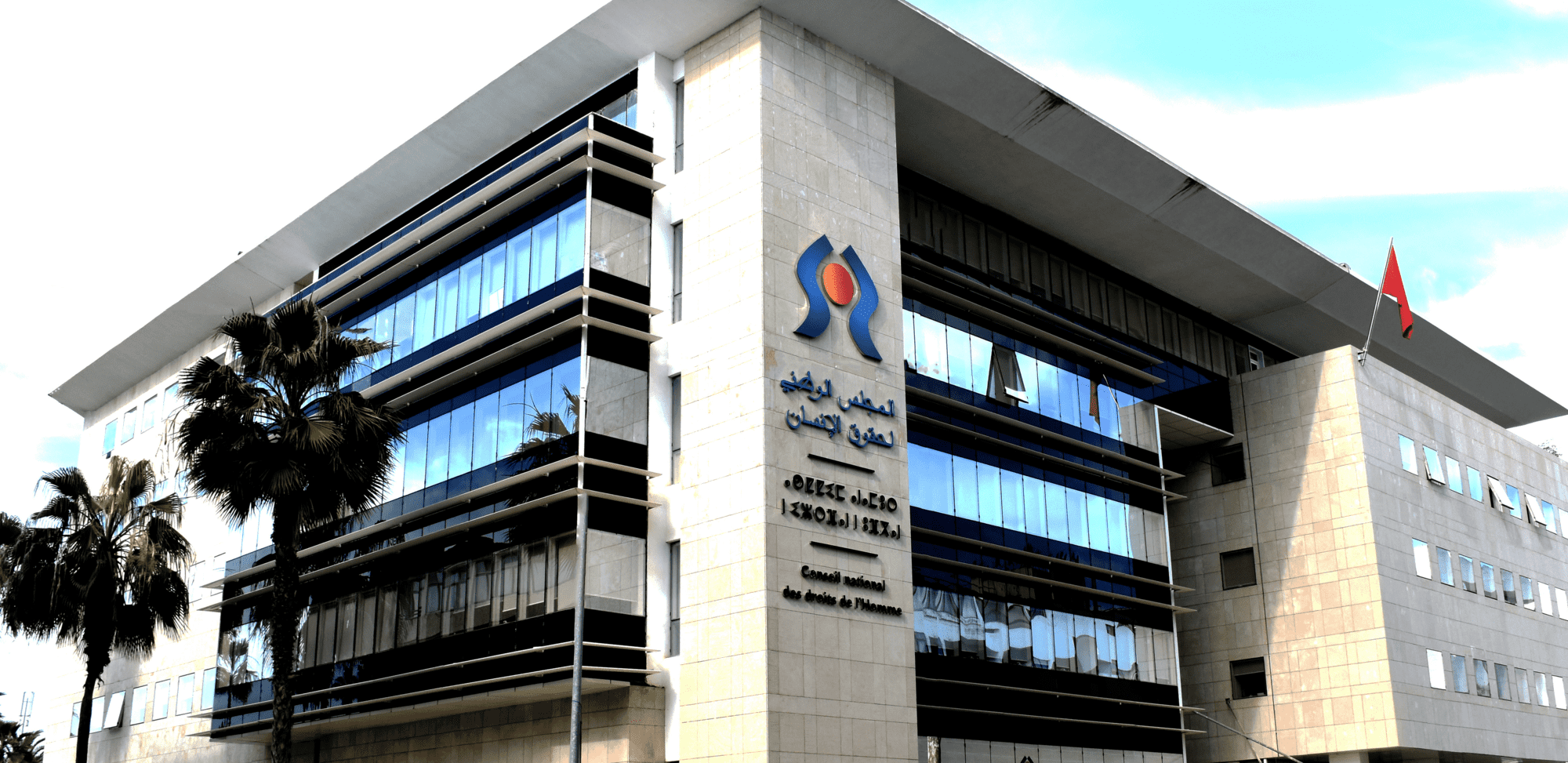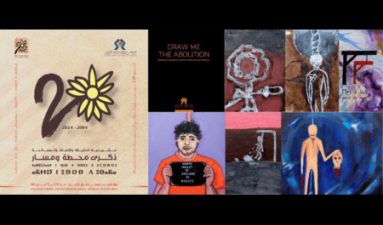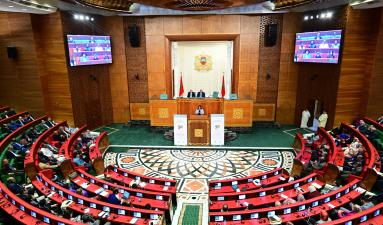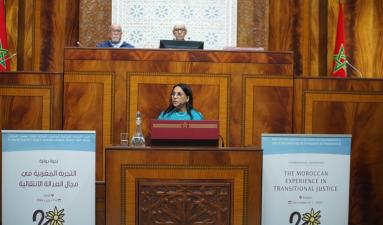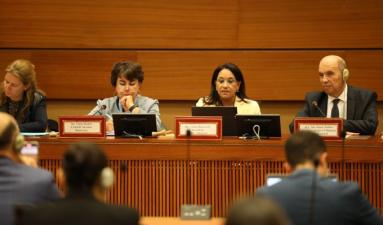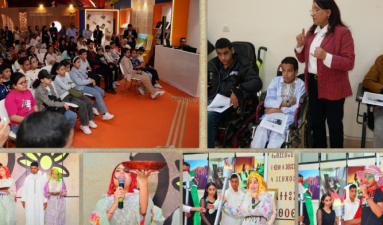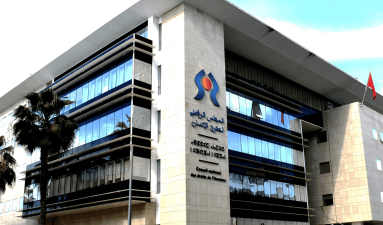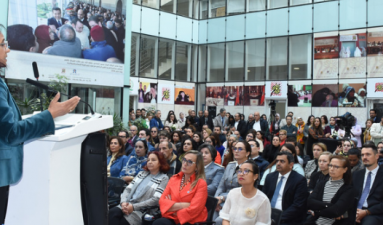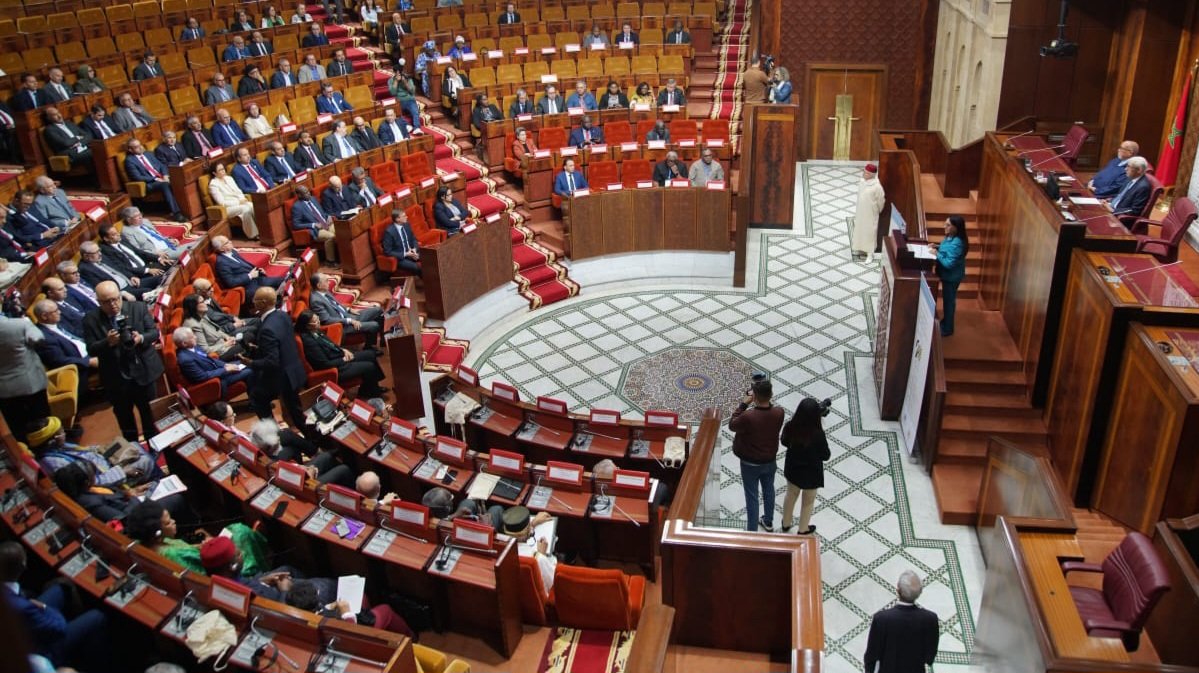
Under the High Patronage of His Majesty King Mohammed VI, the international conference on “The Moroccan Experience in Transitional Justice” was launched on the morning of Friday, December 6, 2024, at the House of Representatives in Rabat, Morocco.
The two-day conference was organized by the National Human Rights Council (CNDH) and both chambers of Parliament to commemorate the 20th anniversary of the establishment of the Equity and Reconciliation Commission (IER).
On this occasion, a Royal Message was addressed by His Majesty King Mohammed VI to the participants in this international event, delivered by Ms. Amina Bouayach, CNDH Chairperson.
In his Royal Message, His Majesty King Mohammed VI reiterated that "the establishment of the IER was a sovereign decision that was part of a proactive process for managing public affairs. Based on a new concept of authority and on holding public institutions to account, that process aims to make sure all Moroccans enjoy a dignified life."
His Majesty further highlighted that, "through the recommendations made by the Equity and Reconciliation Commission - which also made proposals on public policy and emphasized the need to further promote the constitutional protection of human rights - it was possible to lay down a regulatory framework for broad-based reforms. They included the implementation of constitutional and legislative reforms, the creation of consultative and institutional mechanisms to break with past violations, the proper management of public affairs based on justice and the rule of law, and the promotion of a fresh dynamic within society."
The opening session of this high-level conference also featured the inauguration of the “Twenty Years of Truth, Equity and Reconciliation” exhibition at Parliament headquarters, showcasing photos and documents from this pivotal period in Morocco’s modern history.
Additionally, a short video commemorating “Twenty Years of Truth, Equity, and Reconciliation: A Milestone and a Journey" was screened.
In a remote address, Mr. Omar Zniber, President of the Human Rights Council (HRC), underscored that Morocco’s experience in human rights is a pioneering model in achieving justice and reconciliation. He highlighted that the establishment of the IER in Morocco was a visionary initiative designed to end the legacy of gross human rights violations through justice and equity. Mr. Zniber further noted that the incorporation of the IER’s recommendations into the 2011 Constitution was a key factor to the success of this process.
In his remarks, Nobel Laureate for Literature and Nigerian author Dr. Wole Soyinka emphasized that, to break with past violations, nations must revisit and examine the pages of their history and educate future generations about past events to promote healing and prevent the recurrence of tragedies.
Mr. Rémy Ngoy, President of the African Commission on Human and Peoples' Rights (ACHPR) of the African Union, emphasized that constitutional and legislative reforms are essential foundations for achieving transitional justice. He stated that such reforms provide the legal frameworks necessary to ensure reconciliation and address historical and social challenges. Mr. Ngoy added that justice extends beyond addressing social and political damages, underscoring the need for economic investment to enhance social stability and protect individual rights, thereby ensuring a better future for coming generations.
In virtual address, Mr. Volker Türk, United Nations High Commissioner for Human Rights (UNHCHR), praised the role and pioneering experience of the IER, describing it as a milestone in the history of transitional justice, contributing to addressing violations and serving as a cornerstone in the journey toward truth and reconciliation with the past.
The event brought together key national and international stakeholders, including representatives of government, parliament, the judiciary, National Human Rights Institutions (NHRIs), National Preventive Mechanisms against Torture (NPMs), and officials from the United Nations and African Union. Representatives from international, regional, and national civil society organizations, as well as renowned experts and writers, also participated in this event.
The first day of this conference was an opportunity to explore questions surrounding transitional justice processes, including its possible interaction with constitutional, legislative and judicial reforms, the roles of public institutions and civil society in transitional justice processes and supporting the implementation of recommendations from transitional justice bodies, besides preserving memory issues.
The event will also address ways to draw lessons from processes that, through their repercussions and results, constitute a reference for current and future initiatives, with a particular focus on the IER. This Moroccan experience is recognized for its best practices and distinguished by its unique management, implementation, outcomes, and recommendations.
The proceedings of this conference are organized into thematic sessions, focusing on the following topics: "Transitional Justice and Constitutional/Legislative Reforms", "Transitional Justice Processes: Roles of Public Institutions and Civil Society", "Transitional Justice and Judicial Reforms" and "Transitional Justice Processes: Intellectual and Academic Knowledge Production."

